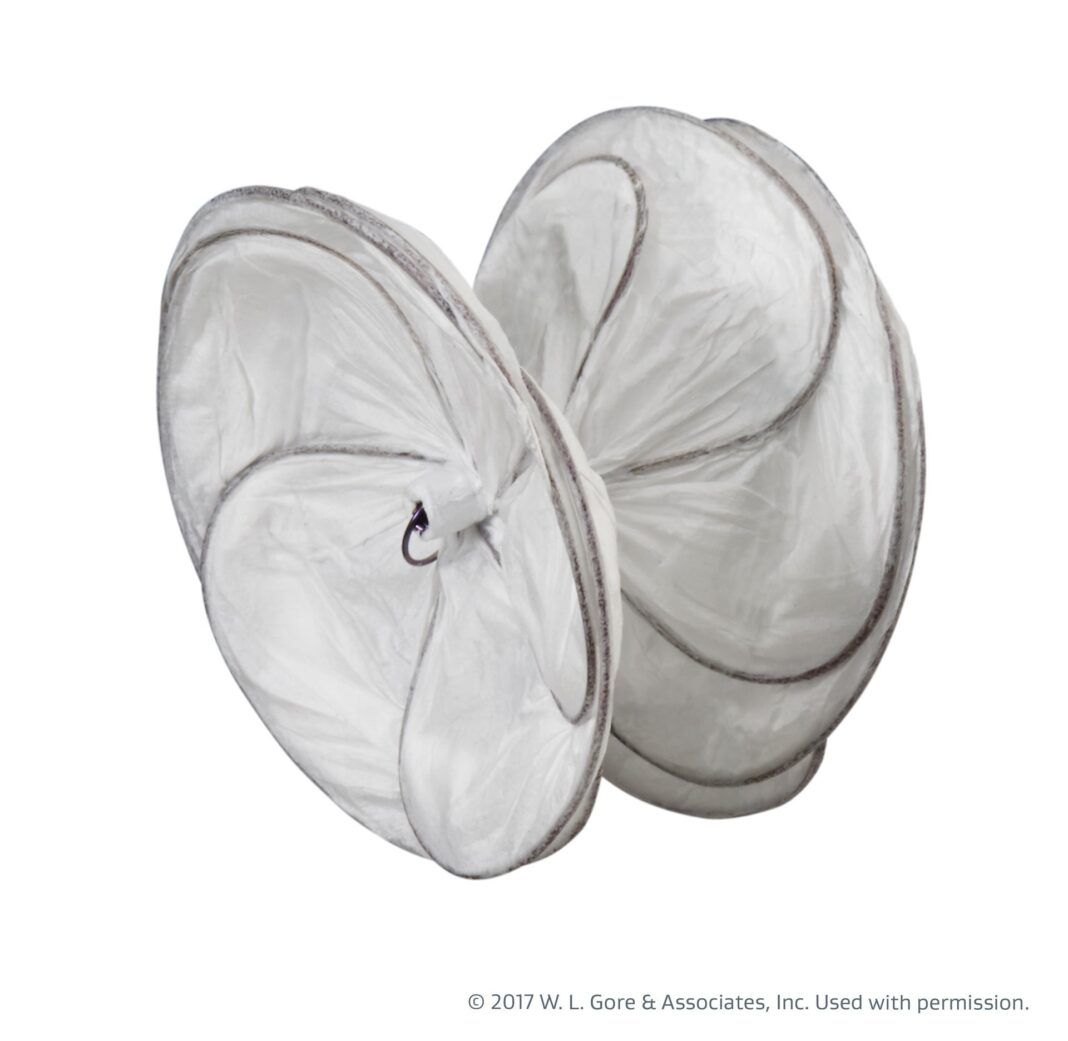W. L. Gore & Associates (Gore) today announced that the GORE® CARDIOFORM Septal Occluder has achieved 10 years of clinical use, treating patients through clinical studies and commercially in approved indications globally.*,† With more than 50,000 devices sold and zero reported cardiac erosions,‡ (Data on file. July 2011-November 2021; W. L. Gore & Associates, Inc.) this innovative technology from Gore offers physicians a safe option to treat patients with atrial septal defects (ASD) and patent foramen ovale (PFO).
The device is backed by the Gore REDUCE Clinical Study, a groundbreaking study in which 664 patients were enrolled to evaluate whether PFO closure with the GORE CARDIOFORM Septal Occluder or the GORE® HELEX® Septal Occluder plus antiplatelet therapy significantly reduces the risk of stroke compared to antiplatelet therapy alone. The REDUCE Study is the only U.S. Investigational Device Exemption (IDE) study that achieved its primary endpoint and over five years showed a significant reduction in recurrent ischemic stroke across all PFO anatomies compared to medical therapy alone. The study also demonstrated Gore’s legacy of safety.§,1,2 At a median follow-up of 3.2 years, the study showed only 0.5 percent device- or procedure-related serious atrial fibrillation (AFib), and at a median follow-up of five years, no new serious AFib cases were reported.§,1,2 No new cases of AFib were associated with the device or procedure.§,2 Furthermore, the extended follow-up demonstrated no issues related to frame fractures, thrombosis, embolization or erosion.§,1,2
Now, after 10 years of clinical use, with zero reported cases of cardiac erosion†,‡ and clinical data published in more than 250 publications,II the GORE CARDIOFORM Septal Occluder has continued to demonstrate its well-established safety profile and exceptional clinical performance.
“The impact and longevity of the GORE CARDIOFORM Septal Occluder illustrate Gore’s ongoing commitment to helping patients,” said Jens Erik Nielsen-Kudsk, cardiology department clinical professor at Aarhus University Hospital in Aarhus, Denmark, investigator for the Gore REDUCE Clinical Study and consultant for Gore. “Gore engineers worked closely with health care professionals to understand what patients need and created a device that conforms to the individual anatomy.”
“This major milestone shows that the GORE CARDIOFORM Septal Occluder is meeting a recognized unmet need. We continue to see health care providers around the globe trusting and choosing this device for their patients,” said Jake Goble, Innovation Leader, Medical Products Division at Gore. “We are grateful to see how our unique design has played an impactful role in the improvement of patients’ lives. We remain excited about future opportunities to extend the reach of this technology benefitting underserved patient populations.”
The GORE CARDIOFORM Septal Occluder is a permanently implanted device approved in the United States and European Union for the percutaneous, transcatheter closure of ostium secundum atrial septal defects up to 17 mm. The device received U.S. Food and Drug Administration premarket approval for the percutaneous closure of PFO in 2018. It is also approved in the European Union for percutaneous closure of PFO.† For more information about the GORE CARDIOFORM Septal Occluder, visit here.
References
* Beginning in June 2011.
† For complete indications and other important safety information for Gore commercial products referenced herein, refer to the applicable Instructions for Use (IFU).
‡ Reported incidence rate of device-related cardiac erosions for GORE CARDIOFORM Septal Occluder and GORE CARDIOFORM ASD Occluder. Data from CATSWeb Product Surveillance Tracking System (PSTS).
§ The REDUCE Study determined safety and efficacy of PFO closure with the GORE CARDIOFORM Septal Occluder or GORE HELEX Septal Occluder plus antiplatelet medical management compared to antiplatelet medical management alone in patients with a PFO and history of cryptogenic stroke. All PFO anatomies were incorporated into this study within indicated sizing parameters of the Instructions for Use.
II W. L. Gore & Associates, Inc. GORE CARDIOFORM Septal Occluder Complete Bibliography. Flagstaff, AZ: W. L. Gore & Associates, Inc.; 2020. [Bibliography].
1. Sondergaard L, Kasner SE, Rhodes JF, et al.; Gore REDUCE Study investigators. Patent foramen ovale closure or antiplatelet therapy for cryptogenic stroke. New England Journal of Medicine 2017;377(11):1033-1042.
2. Kasner SE, Rhodes JF, Andersen G; Gore REDUCE Study investigators. Five-year outcomes of PFO closure or antiplatelet therapy for cryptogenic stroke. New England Journal of Medicine 2021;384(10):970-971.
